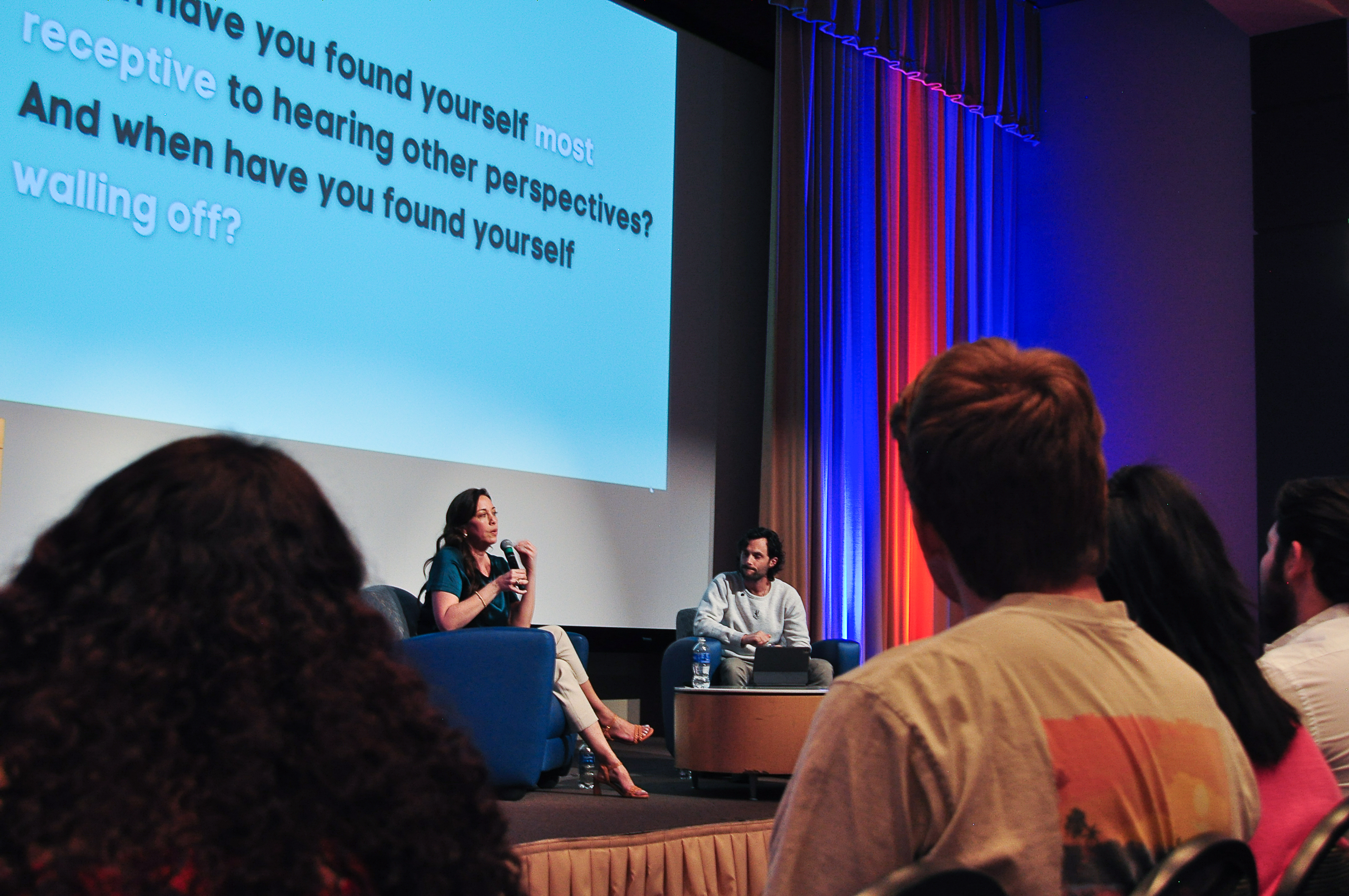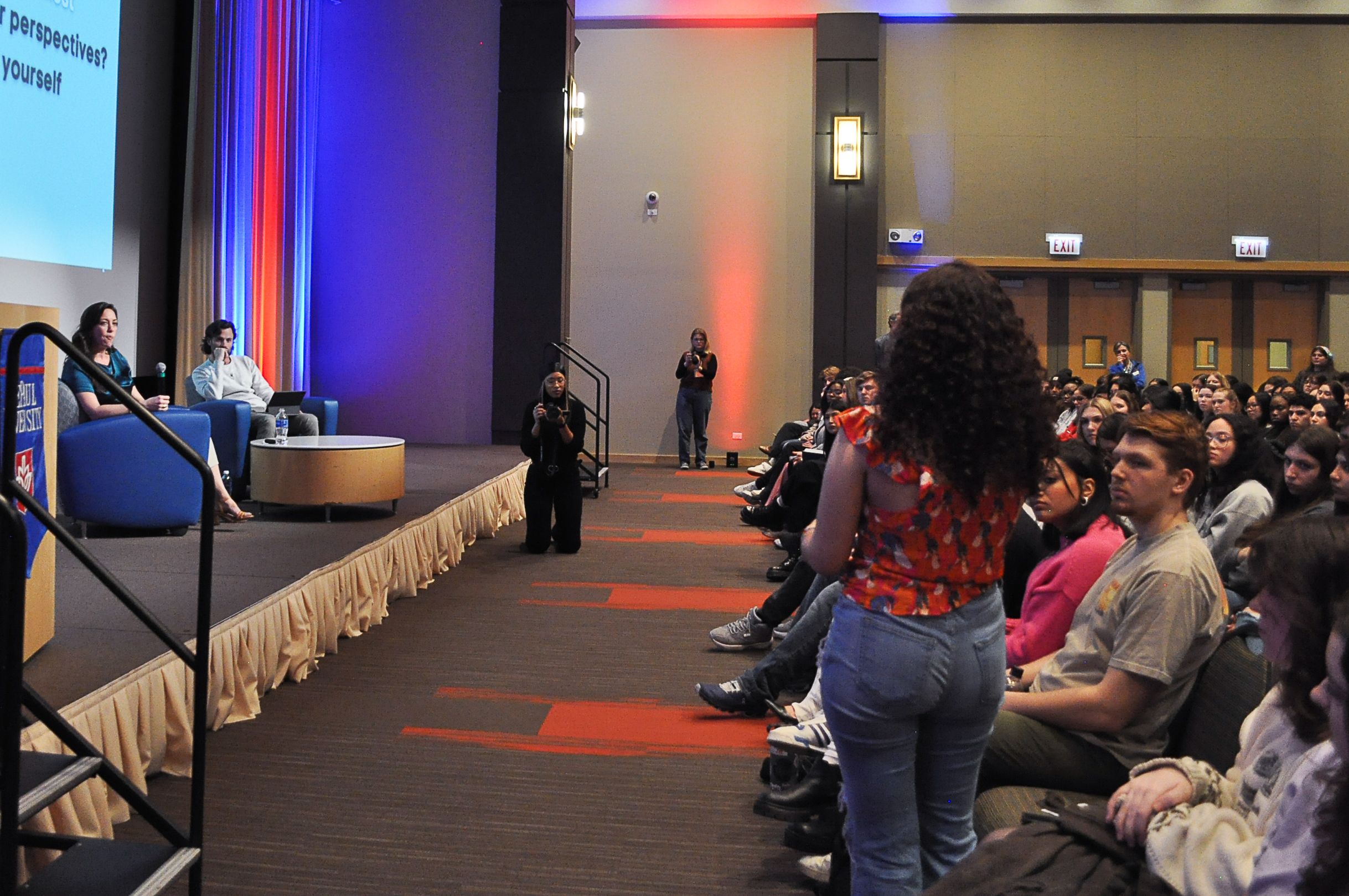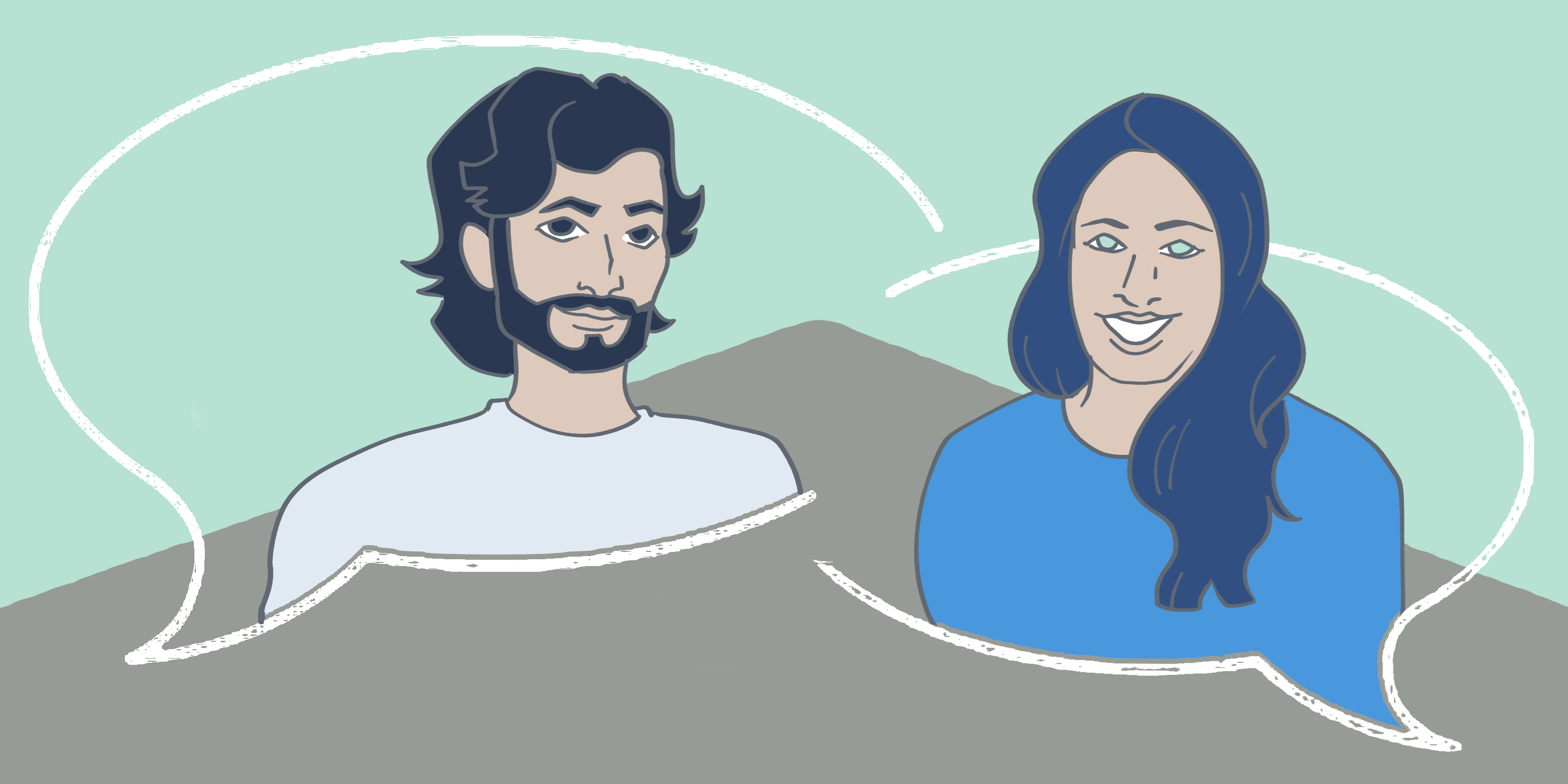The actor was joined by Dr. Nura Mowzoon to talk to students about relationships, connection and compassion.
A room full of chattering students all have one thing on their mind, Penn Badgley.
DePaul students and staff flocked towards the Lincoln Park Student Center Tuesday evening to attend the highly anticipated “Can We Talk” event.
With a total of 553 students registered, the event had reached its registration and waitlist capacity the day of its announcement.
The students flooded into Room 120AB, arriving to make it for the event’s 4:30 p.m. start time. Applause erupted as soon as students caught a glimpse of the television star.
“Can We Talk” is a discourse series held by actor Penn Badgley and Dr. Nura Mowzoon. The pair goes around visiting universities with the mission of “creating spaces for meaningful conversations.” So far they have been to Arizona State University, University of Illinois Urbana-Champaign and San Diego State University, DePaul being their most recent stop on the tour.

Social scientist Nura Mowzoon and actor Penn Badgley speak to a crowd of DePaul students during the latest stop in their “Can We Talk” series on March 28. DePaul was the fourth stop on their tour of universities. Photo by Mariah Hernandez, 14 East
Badgley is well known for his role as Dan Humphrey in the show “Gossip Girl.” More recently, he portrays Joe Goldberg, a serial killer in the Netflix show “You.”
Mowzoon offers a more educational point of view. She has a doctorate in marriage and family therapy, teaches classes at Arizona State University and works in the social sciences field, looking at topics about relationships, marriage, family and diversity.
While Mowzoon has specialized in studying human relationships, Badgley doesn’t claim to have any “authority.” What he brings to the conversation is his perspective of being part of an industry that portrays unrealistic relationships in shows that most of the audience have devoured during binge-watching sessions on their couch. Badgley is aware of the romantic toxicity his characters have on TV, describing them as relationships that “make a good story but makes a person miserable in real life.”
Badgley says he is still learning the hows and whys of relationships. Not just romantic ones, but platonic as well and how as an individual you can work within these relationships.
“I became really interested in this idea that personal transformation is intimately linked with social transformation and that we currently have this idea — understandably — that we complicate and politicize matters that sometimes are simple,” Badgley explained.
The talk wasn’t all academic psychological talk between Badgley and Mowzoon. They opened up the conversation to students as well.
A series of questions were projected across the screen behind the two. “What do you think gets in the way of having these meaningful conversations?” or “When have you found yourself most receptive to hearing other perspectives? And when have you found yourself walling off?”
Hands shot in the air immediately, and Badgley and Mowzoon picked students across the room to hear their input on these questions. Both then conversed with students.
Several students brought up aspects of their own identity and how it has affected their personal relationships, whether it was being an immigrant, a Black gay man or a Latina woman. All students shared a similar experience of not being taken seriously.

A student responds to a question when Mowzoon and Badgley address the audience during the conversation held in the DePaul student center. The series of talks has a mission of “creating spaces for meaningful conversations.” Photo by Mariah Hernandez, 14 East
Other topics brought up included cancel culture, differences between people, oppression and hate.
The talk wasn’t meant to answer all these questions, but merely to start a deeper conversation about the divisions we have and the relationships we try to maintain despite these differences.
“It’s then a question of how and where and when, and why does that cycle end? Who does the work? … How do we even approach it?” Badgley said.
Mowzoon brought up the idea of compassion when faced with hate, “We could choose to be compassionate and curious … at the very least we can choose to wonder, to be curious about their why, about what it was that got them to this point.” Not necessarily writing off and accepting hate but inquiring, why this person is being so hateful in the first place.
The conversation itself was an engaging combination of dialogue between students and insight from Badgley and Mowzoon. With the event already going overtime, they moved to their last slide which presented a James Baldwin quote, “In order to learn your name, you are going to have to learn mine.”
If you are interested in continuing the conversation, on Friday, March 31, a follow-up event based on the topics discussed during the talk will be held by the Office of Religious Diversity and Pastoral Care at 11 a.m. in DePaul’s Jewish Life Center (LPSC 340). You can register for the event here.
Header Illustration by Julia Hester




NO COMMENT